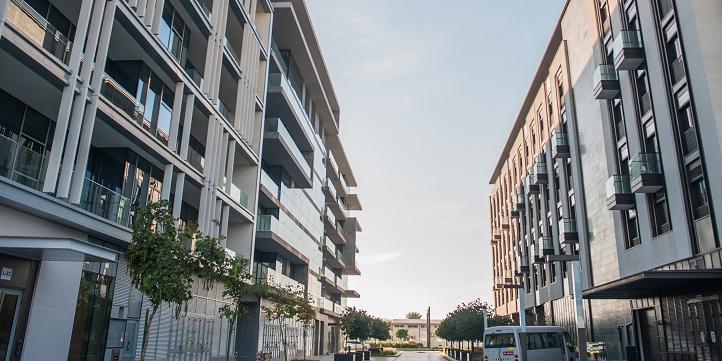Industrial Area
AL QUOZ
Al Quoz is the area stretching between Sheikh Zayed and Al Khail roads and bordering Al Barsha to the south and Al Wasl to the north. Al Quoz is divided into an industrial and a residential sector, with four subdivisions to each use. Al Quoz 1, 2, 3 and 4 in the industrial sector were developed as industrial and labour accommodation areas. In recent years an exciting contemporary art scene has developed among the factories and warehouses of Al Quoz. Warehouses provide the ideal wide empty space that make for perfect exhibition venues. Anchored by the many galleries on Alserkal Avenue, Al Quoz has evolved into a major hub of contemporary art in Dubai. In addition to such leading galleries as Carbon 12, Isabelle van den Eiden, Green Art and FN Designs, Alserkal Avenue hosts the Salsali Private Museum and many restaurants and cafes. Al Quoz is also home to Satellite, an alternative arts space. Satellite supports artists in residence and provides them with the opportunity and space to produce new and original works of art.
RAS AL KHOR
Ras Al Khor is one of several industrial areas developed in suburban Dubai and comprises three sublocalities: Industrial Area 1, 2 and 3. Ras Al Khor is home to many construction companies, labour accommodation projects and Dubai Municipality used car trading complex. Ras Al Khor Wildlife Sanctuary is a wetland reserve area that is home to a large number of migratory birds. Most famous among them are about 500 greater flamingoes (Phoenicopterus roseus), which have become something of a mascot for Dubai’s Wildlife protection programme. Currently, there are only three birding hides accessible to the public. The opening hours are from 9.00'am to 4.00'pm Saturday to Thursday.
JEBEL ALI
A small coastal village not long ago, Jebel Ali is a bustling port town, home to the port that bears the same name. Jebel Ali is located 35 km southwest of Dubai and was originally built to provide accommodation to the people working on the construction of the port. The fortunes of the village were changed in 1985, year during which the Jebel Ali Free Zone (JAFZA) was established. Since that time JAFZA has become the largest free zone area in the world, providing international companies with free zone privileges such as: 15 year corporate tax exemption, no import/export tax, no currency restrictions, no personal income tax and simplified and easy access to labour force. Al Maktoum International Airport is built in the area adjacent to the port. Jebel Ali is served by Dubai Metro Red Line via UAE Exchange, Danube and Energy stations.
-
Bestseller
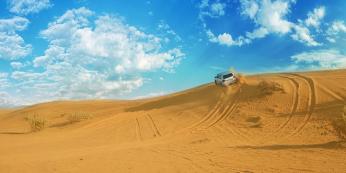 Desert Safari & BBQ DinnerHalfdayfrom 180 AED
Desert Safari & BBQ DinnerHalfdayfrom 180 AED -
-40 %
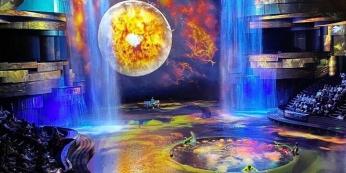 La Perle Tickets90 minutesfrom 269 AED
La Perle Tickets90 minutesfrom 269 AED -
Bestseller
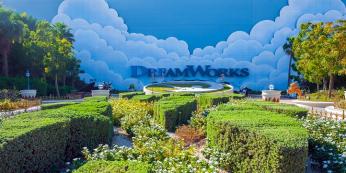 Motiongate TicketsFull dayfrom 295 AED
Motiongate TicketsFull dayfrom 295 AED -
-40 %
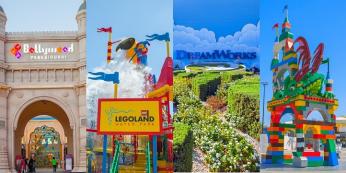 DPR 2 in 1 TicketsFull dayfrom 355 AED
DPR 2 in 1 TicketsFull dayfrom 355 AED -
Bestseller
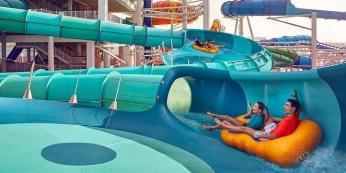 Aquaventure Waterpark TicketsFull dayfrom 355 AED
Aquaventure Waterpark TicketsFull dayfrom 355 AED -
Bestseller
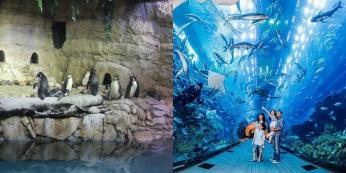 Dubai Aquarium Tickets2 hoursfrom 190 AED
Dubai Aquarium Tickets2 hoursfrom 190 AED -
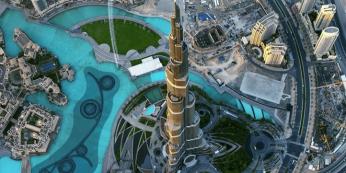 Burj Khalifa "At the Top" Tickets1 hourfrom 209 AED
Burj Khalifa "At the Top" Tickets1 hourfrom 209 AED -
Bestseller
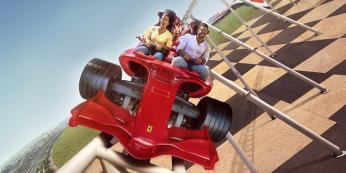 Ferrari World TicketsFull dayfrom 345 AED
Ferrari World TicketsFull dayfrom 345 AED -
Bestseller
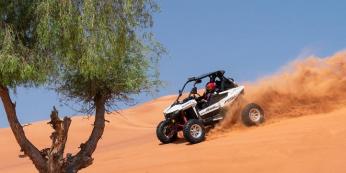 Extreme Buggy Tour2 hoursfrom 1950 AED
Extreme Buggy Tour2 hoursfrom 1950 AED -
Bestseller
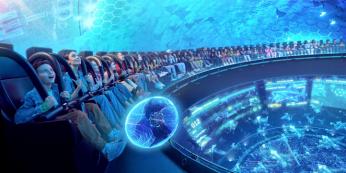 SeaWorld Abu DhabiFull dayfrom 375 AED
SeaWorld Abu DhabiFull dayfrom 375 AED -
-40 %
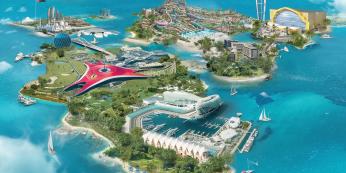 Yas Parks Multipass6 daysfrom 475 AED
Yas Parks Multipass6 daysfrom 475 AED -
Bestseller
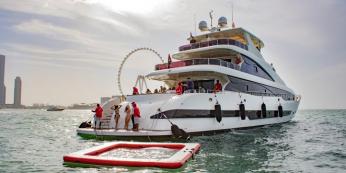 Super Yacht Experience3 hoursfrom 460 AED
Super Yacht Experience3 hoursfrom 460 AED -
Bestseller
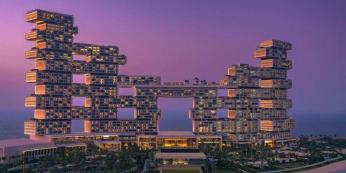 Gastronomy DinnerEveningfrom 0 AED
Gastronomy DinnerEveningfrom 0 AED
